Everyone knows the importance of a healthy lifestyle for your heart. But, do you know what specific changes are necessary to achieve this goal? and how these alterations will impact your body?
When your doctor recommends changes to your lifestyle, do you think it’s only a suggestion? Actually, making these modifications can have significant benefits for both your heart health and overall well-being. Lifestyle changes improve the quality of life by improving the length of time you live.
The following changes to a healthy lifestyle are something that you should take seriously. This means embracing them with your heart.
Quit Smoking
Smoking is one of the most harmful activities you can do to your body, both physically and emotionally. Here’s how:

Smoking reduces the amount of oxygen in your bloodstream, which causes an increased concentration of carbon monoxide. It damages endothelium lining and causes deposition of fatty substances.
Smoking promotes clot formation in arteries of heart.
Smoking any kind of tobacco is harmful to the heart, no matter how much you breathe in second-hand from those around you.
Smoking cigarettes increases blood pressure and puts an extra burden on your heart.
Quitting smoking is the best way to have a healthy heart lifestyle. the benefits of quitting include reducing your risk for cardiovascular disease and other health problems.
Blood pressure goes down and blood flow improves due to the new exercise routine.
Exercise Regularly
The #2 way to have a HEART HEALTHY LIFESTYLE is to exercise regularly.
No exercise causes
– Increased risk of developing cardiovascular conditions such as coronary artery disease and stroke.
– Losing muscle mass, which makes it more difficult for you to exercise or recover from a physical injury.
Increased body weight
Diabetes (a heart disease risk factor)
High blood pressure
Deterioration of heart condition
Regular physical activity can help reduce your risk of developing heart problems, especially if you do it at a moderate intensity for 30 to 60 minutes on most days. If exercise is not an option because you have a busy schedule or live in a constantly active environment, breaking up your exercise sessions into three 10-minute workouts still provides the same health benefits as one long session of 30 minutes. Even more important than how much exercise you get each day is that you make sure to include routine activities like walking to the market instead of driving and getting off the bus two stops behind. By doing small things throughout each day, over time this will add up and lead to bigger improvements in your overall health
to 60 minutes on most days. If exercise is not an option because you have a busy schedule or live in a constantly active environment, breaking up your exercise sessions into three 10-minute workouts still provides the same health benefits as one long session of 30 minutes. Even more important than how much exercise you get each day is that you make sure to include routine activities like walking to the market instead of driving and getting off the bus two stops behind. By doing small things throughout each day, over time this will add up and lead to bigger improvements in your overall health
Eat a Balanced Diet to have a healthy heart.
A heart-healthy diet should consist of foods that are low in cholesterol, fat and sodium. By controlling the portion size, it is possible to maintain a healthy weight while also managing diabetes and keeping your heart health in check.
Foods to include in a heart-healthy diet.
Whole-grain foods (whole wheat, brown rice, oatmeal, etc.)
Eating more fruits and vegetables, especially those that are deeply coloured like spinach, carrots, berries, etc.
Poultry, fish
Low-fat dairy products
Foods to avoid for a heart-healthy diet.
Total fat, trans fat, saturated fat and cholesterol
Sweets and added sugars, sweetened beverages
Red meat
If you want to lower your blood pressure, limit the amount of salt in your diet. This can be done by eating less sodium and Lowering the amount of salt in processed foods to 1500 mg per day.
Before purchasing food or drinks, be sure to read the label and determine how many calories, fat, salt and sugar it contains. This will help you keep track of your diet and make healthy choices.
Manage Body Weight
Being overweight increases your risk of developing high blood pressure, cholesterol, and diabetes. These conditions can lead to heart disease – a condition that’s commonly associated with obesity. To determine if you’re at an increased risk for this type of health problem, doctors measure your weight in two ways: by looking at the number on the scale or through other methods such as measuring abdominal fat.
Body Mass Index (BMI)
BMI is a standard measure to determine if an adult individual meets the health criteria of being overweight or obese.
BMI is a numerical formula that uses someone’s height and weight to determine if they are obese.
BMI = Weight (kg)/Height (m)
Where,
A person with a BMI below 18.5 is considered underweight.
BMI 18.5 – 24.9 = Normal
BMI 25.0 – 29.9 = Overweight
BMI 30.0 and above = Obesity
Waist Circumference
The waist circumference is a good predictor of abdominal fat. Having a waist size that exceeds 40 inches in men and 35 inches in women increases your Risk of heart disease. Even if you are overweight, losing just 5-10% of your body weight can reduce this risk significantly.
Manage Stress
Stress affects the heart by causing stress hormones to be released.
It can cause an emotional response that can lead to a heart attack.
The harmful effects of Your reaction mechanism to stress (smoking, drinking alcohol, and overeating) can lead to an increase in heart disease risk. This unhealthy lifestyle choice may have a negative impact on your overall health by compromising the quality of your diet.
Taking action to reduce or eliminate stress in a timely manner can help lead you towards having a healthy lifestyle, including good heart health. Some methods for managing stress include:
Exercise
Joining a support group of people going through similar problem, talking to friends or family.
Every small action taken by you will boost your overall health as well, and at the same time protect your heart.

